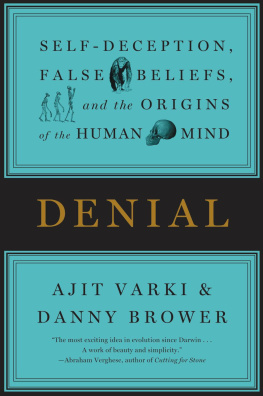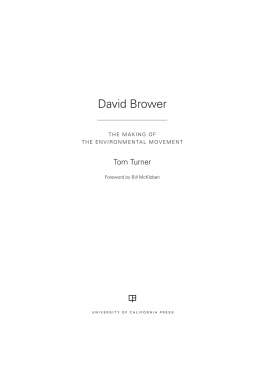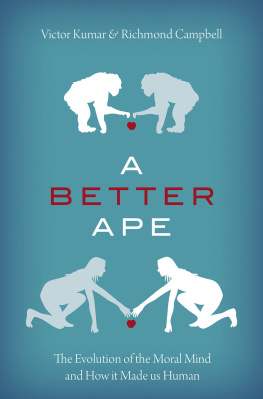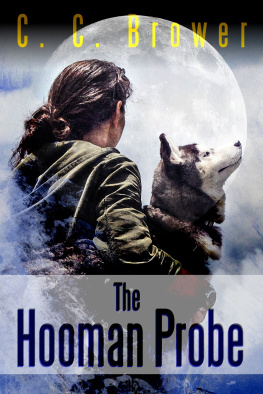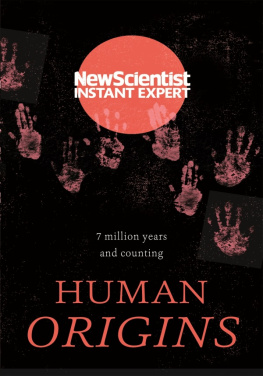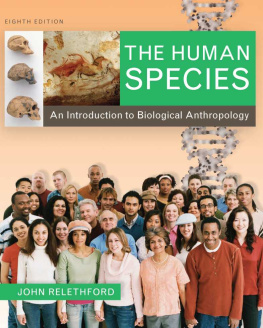Denial
An unconscious defense mechanism characterized by refusal to acknowledge painful realities, thoughts, or feelings.
The American Heritage Dictionary of the English Language
We now know that the human animal is characterized by two great fears that other animals are protected from: the fear of life and the fear of death.
Ernest Becker, in The Denial of Death
We who perhaps one day shall die, proclaim man as immortal at the flaming heart of the instant.
Saint-John Perse (Alexis Saint-Lger Lger), in Seamarks
The yaksha asked: What is the greatest surprise? Yudhisthira replied: People die every day, making us aware that men are mortal. Yet we live, work, play, plan, etc., as if assuming we are immortal. What is more surprising than that?
The Mahabharata
Truth is stranger than fiction.
Lord Byron, in Don Juan
Fiction is obliged to stick to possibilities; truth isnt.
Mark Twain, in Following the Equator
T he story behind this book is strange and improbable. Two individuals from very different backgrounds converged on a single question, happened to meet just once, discussed it briefly, parted companyand would never see each other again. One of them, Danny Brower, died suddenly at the age of fifty-five in 2007. The other personI, a physician turned scientistwas left to complete our story. From our single chance conversation grew this book, which should interest anyone who cares about the universally human questions Who are we? How did we get here? Why are we the way we are? And where are we going?
The improbability of it all becomes starker when you consider what different circumstances the two of us came from. Danny was born in November of 1951, was raised in the United States, and worked his way up from modest means to the prestigious position of professor and chair of molecular and cellular biology at the University of Arizona at Tucson. By the time I met him, he was already well known for his pioneering work on protein molecules called integrins, the study of the processes by which all life on this planet emerged over the last three billion years or so. A natural progression of such thinking made him wonder about the origin of our own species, Homo sapiens.
As for me, I was born just two months after Danny, but was raised on the other side of the planet, in India. I grew up in a traditional Orthodox Christian family from the southern state of Kerala, but attended English-language schools and went on to medical college with the idealistic goal of saving lives. But as it happens, the curriculum in medicine includes a strong dose of fascinating biology. Inspired by this aspect of my education, I finally decided that I could contribute more to society by becoming a biomedical researcher. However, opportunities to pursue this track in India were sparse in the 1970s. Reading the scientific literature, I realized that the United States was the one country in the world where physicians were being encouraged and supported in their efforts to do research side by side with other kinds of scientists. Thus it was that I emigrated to the United States in 1975 with six dollars and a suitcase, eventually becoming board certified in internal medicine, hematology, and oncology and working my way up to my present position as a professor at the University of California, San Diego (UC San Diego). Just as I had originally hoped, this career path allowed me to pursue my passion for science and research, and eventually took me away from patient care and into the emerging field of glycobiology, which studies the dense, complex, and varied forest of sugar chains that are now known to cover every one of the cells in our bodies.
While starting up my independent research career I still continued to see patients part-time, as a physician and cancer specialist. The latter role naturally led me to ponder issues of life and death, particularly the question of how it was that patients with terminal cancer could so courageously fight to stay alive against all odds. It seemed to me that both patient and physician were actually denying the reality of what they were up against, even in the face of a grim prognosis. But then, optimistic thinking that helps us go on despite the odds doesnt just feature in life-or-death situations; it is part and parcel of what makes us human, and comes across in so many of our activities. These and other life experiences, such as watching my own daughter grow up, Although great apes and humans look rather different, scientists as far back as in the 1960s and 1970s had shown that we are genetically very similar. In fact, viewed from the perspective of genes, we are more similar to chimpanzees than mice and rats are to each other! And chimpanzees have more in common with us genetically than they do with gorillas. So the big question has been: Why are we humans so different from chimpanzees and gorillas in appearance, behavior, and so many other features while they seem so similar to each other? Why is it that a chimpanzee or gorilla cannot do what I am doing right nowcommunicating with a reader about stories of past events with implications for our future? And although we may have never met each other, how is it that you, the reader, understand what I am thinking, and how do I know that you might be doing so?
In 1984, my thoughts about such matters were very suddenly brought into focus. I was seeing a patient who had an immune reaction to a horse serum that had been administered to treat a rare blood disease. What I learned from this case inspired additional research, and by the mid-1990s my research group had uncovered the first known clear-cut genetic difference between humans and great apes. But thats another story, for another time.
These unexpected findings stoked my already keen interest in something quite far removed from my original training an explanation for the origins of the human species. Where we humans came from is undoubtedly one of our greatest unsolved mysteries, at least from the human perspective. And while the work of many scientists had painted the broad brushstrokes of how this might have happened, there was precious little known at the time about any molecules and biological processes unique to humans. So by the late 1990s I began to focus my research specifically on this area of anthropogeny (this classic but long-unused term encompasses the scientific pursuit of human origins and evolution).
But lets get back to the story of how I met Danny Brower. A decade into my quixotic quest to understand human origins and evolution, my own knowledge base was sufficient to embolden me to give a few public lectures on the topic. One of the first I delivered was at the University of Arizona on April 2, 2005, about molecular differences between humans and chimpanzees and how they might have contributed to human uniqueness. As you might imagine, I was a bit nervous. But the lecture seemed to go well, and audience responses were positive. At the pleasant spring open-air luncheon that followed, a tall, intense man with a scraggly beard sat down next to me, introduced himself as Danny Brower, and pointedly informed me that we were all asking the wrong question. At first I thought he was some local eccentric, but when I realized he was a well-known professor at the university, I gave him a careful hearing.
Instead of just asking what evolutionary processes made us human, Danny said we should also be asking why such complex mental abilities have appeared only in humans, despite many other intelligent species having existed and evolved for millions of years. In other words, if having complex humanlike mental abilities has been so good for the success of our species (as everyone has assumed), then how is it that we are the only species that got so brainy? The usual assumption is that something very unusual and special happened to human brains during evolution, and that we just need to find out what that something is. But Danny took a fascinating contrarians position, saying that we should

